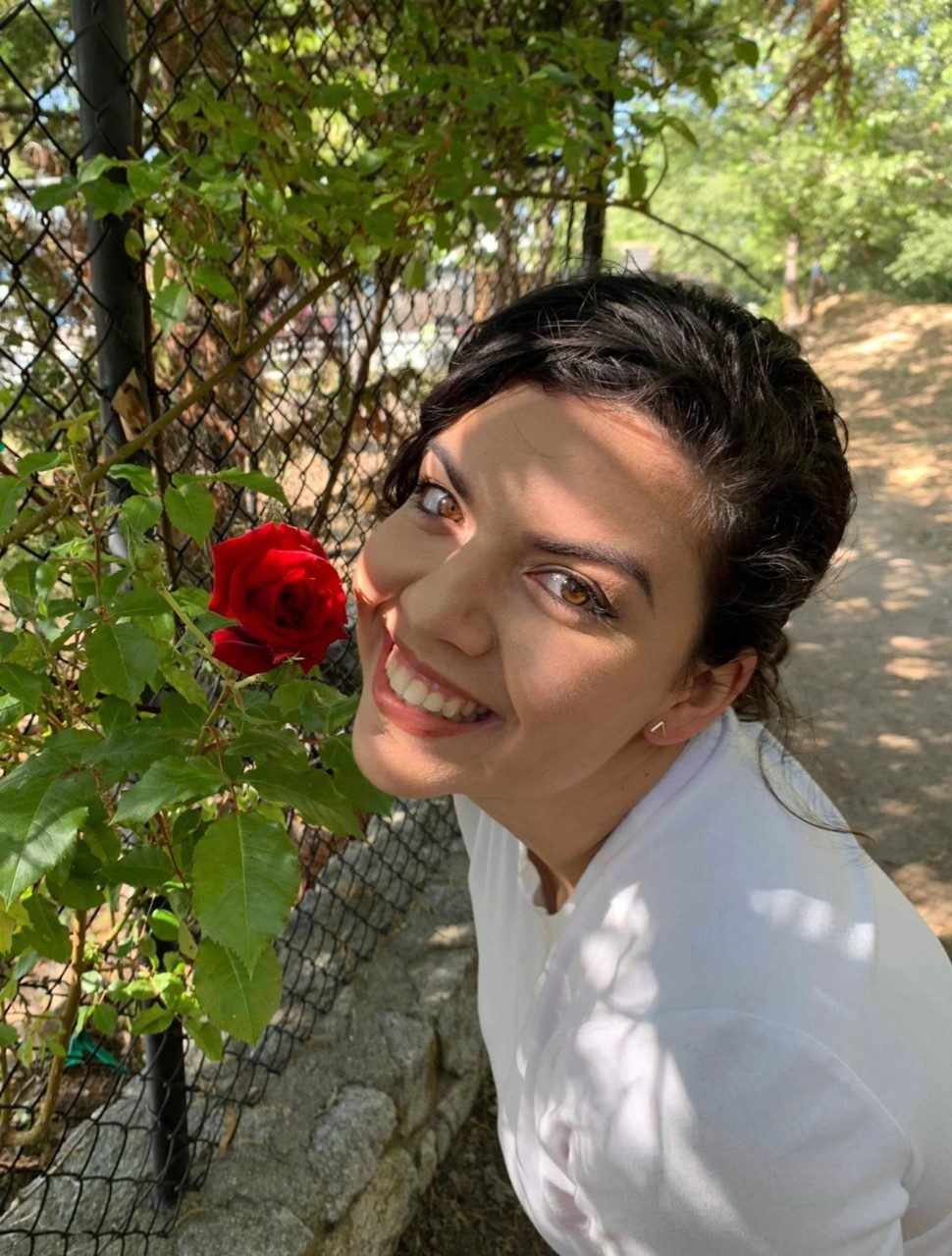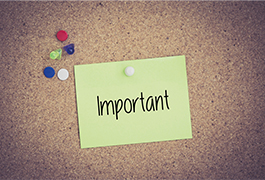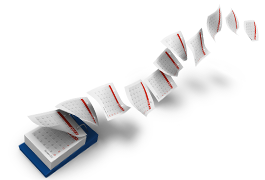Grad Student Olga Riusech on the Impact of Mentoring
When Olga Riusech started out in college, she thought kinesiology was the path for her. She wanted to be in health, and she wanted apply her love for math in her future career. But out of all her science classes, chemistry is the one that gave her the greatest sense of satisfaction. So, she switched her major, and now she is a second-year PhD student at University of Wisconsin, Madison, with the hope of one day developing electrochemical and microfluidic devices in tandem with mass spectrometry for biomarker discovery and quantification.
We talked to Riusech about how her college experiences, her participation in the ACS Bridge Program, and how her passions have helped to shape her approaches to research, community work, and personal fulfillment.
What undergraduate experiences kept you motivated to continue studying chemistry at an advanced level?
I have had a lot of mentors, both professional and personal. My first-ever research experience was in my freshman at Iowa State University with Dr. Smiley-Oyen. She gave her undergraduate mentees a sense of self-efficacy. My first experience with chemistry research was with Dr. Robbyn Anand, who challenged me to think deeper in a field I had never studied before: electrochemistry. During my gap year, I did research with Dr. Kelly Rein at Florida International University. She helped me incorporate my biology background with an organic context. I think having this diversity of experiences has kept me motivated and helped me understand what kind of work I like to do.

What challenges did you face getting into graduate school?
It wasn’t until halfway through my last year of undergrad that I started to see graduate school as a goal and an option. I had missed the application deadline for that year, so I took a gap year in Florida. Applications during a gap year are very different without the guidance of a mentor to work with in-person and revise your essays. Halfway through my gap year I started working for Dr. Rein, who referred me to the ACS Bridge Program. This experience has really helped me feel ready, and it has also enlightened me to the biases of the academic system and how to handle these biases at a predominantly white institution.
Can you tell us more about how the ACS Bridge Program helped prepare you for grad school?
At the beginning of the year, we had a two-week crash course on instrumentation. We were exposed to the facilities and had meetings about developing an Individual Development Plan to help discover how our lab skills and personality might align with group joining. We attended the IGEN conference and had several meetings with mentors in preparation for the ACS national meeting. While working as a teaching assistant, I started research with Dr. Etienne Garand, which was an entirely new kind of research in every sense of the term. COVID responses have kept me on the theory side, but meetings with my mentors and group members have helped me elucidate meaning from our preparations in going back to lab. This has been a great opportunity to reflect on what my research needs are.
What did you learn from your Bridge mentors and coaches?
Garand's research ethic is very different from every other mentor I’ve had, namely because we work on instruments in a physical chemistry capacity. I was drawn in for the opportunity to learn about instrumentation, but wound up learning this physical chemistry philosophy: “what can we learn from this?” I think in a lot of biologically-relevant research, we see a problem and we try to solve it by any means necessary. I really enjoy the task-based learning system of biologically relevant research and believe it aligns better with how I think; however having the opportunity to work in a community that cares solely about learning is an indispensable experience. It’s the most patient kind of research I’ve ever conducted, and I’m still figuring out how to navigate this philosophy into my daily habits—even in my present research.
What research are you currently working on?
The project I had with Garand stagnated due to some shut down logistics, and I have since taken the opportunity to pursue the biological applications that I’m passionate about. Garand helped me find a new lab, and now I’m working with Dr. Lingjun Li at University of Wisconsin, Madison, in neuropeptidomics and metabolomics. We do quantitation using our specialized tags iDiLeu (isotopic N,N-dimethyl leucine), which allows us to obtain absolute concentrations of amine-containing analytes within a sample. I’ve been working hard to learn the ins and outs of dissections with my colleagues. We were initially working on a novel MALDI approach, but I’ve since turned my attention to a multiomics approach. It has been very interesting to learn how many components impact accuracy in quantification. Some of the small molecule considerations from my colleagues in the Garand lab have become indispensable in optimizing metabolomics techniques on the neurotransmitter side of things. It really amazes me how even with a completely different set of instruments, the chemistry can be so intertwined.
What courses have you taken in grad school? Which course did you like most? Which ones were most challenging?
I’ve taken physical-organic chemistry, electrochemistry, instrumentation, computational chemistry, instrumental analysis, intro to mass spectrometry, and organic analysis. Physical-organic and instrumentation were possibly the two most challenging for me, but electrochemistry was definitely my favorite. I understand instrumentation best through the lens of electrochemistry, which is very strange to my colleagues who all learned instrumentation in a more engineering-like context. Rob McClain, our instrumentation staff scientist, has been instrumental to helping me bridge my electrochemistry background into understanding electrical components. Since I’ve changed my focus to more analytical mass spectrometry, the intro to mass spectrometry and organic analysis courses have been fundamental to my understanding of my current research. Each of these classes has a project at the end, which I rather enjoy. You never know how complex a detailed workflow can be until you attempt to write a proposal. Professors Martha Vestling and Lingjun Li are incredible teachers and I owe them my gratitude for helping me to understand and enjoy learning in this field!
When you’re not studying or doing research, what do you like to do?
I have many interests, arguably too many interests! For volunteer work, I have successfully re-established a NOBCChE chapter at our university with my colleagues. I have worked on the Latinx Cultural Center advisory board and planning committee. I have a chemstagram (chemistry Instagram) that I’ve been running for a couple of years now, which helps me organize thoughts on techniques.
On a more personal note, I used to do a lot of boxing and Jiu Jitsu with a mixed martial arts team. During quarantine, I returned to my old hobbies: long-distance swimming, Yoga for Chemists, piano, guitar, dance, sketching, and makeup.
An initiative I’m really passionate about bringing to conversation is the stigma of sexuality and the gender and cultural biases of professionalism. At the Latinx Cultural Center, we've instituted an event called "tu voz" in which we address many things from colonization of nature to the complexity of gender within our culture. We've also hosted an event called "changing normal" to discuss gender roles and the history of gender in the latinx community.
Identity as a graduate student is very complex. Many of my colleagues have expressed stress over the activities they’ve sacrificed in order to satisfy their perceived responsibilities. With the help of my therapist, I’ve learned to cope with this loss by reminding myself that downtime is a necessity to keep your mind functioning. It is part of our humanity to not be entirely efficient, and part of resolving this mental health crisis that graduate students experiences is creating an environment that acknowledges human needs. My friends in graduate student organizations like NOBCChE, GSFLC, Queer in Chemistry, Women in Chemistry, and the Climate Committee share the work load on this endeavor, and it’s essential to me that I mention every department has the choice to play an active role in addressing these issues.
What do you want to do when you complete grad school?
I think it’s a little early to tell what I want my career to look like. I have imagined working at a predominantly undergraduate institution, but I’ve also imagined working in industry. I think I’d like to return to electrochemistry in a bioanalytical context for my PhD and use what I’ve learned in my Bridge program experiences to forge research approaches with more confidence. My current work with Dr. Li is very exciting, I’ve found a passion for environmental analytical chemistry, especially with water relevance. The dream is to develop novel and cheap electrochemical technology and retain my mass spectrometry skills for biomarker discovery to design this technology. I imagine wherever I end up, I’ll be very involved. ACS resources and workshops like the Strength Finder Assessment, and University of Wisconsin-Madison resources, such as the Latinx Cultural Center, have reminded me how important leadership and advocacy are to me and how relevant they are to constructing a fulfilling career.




